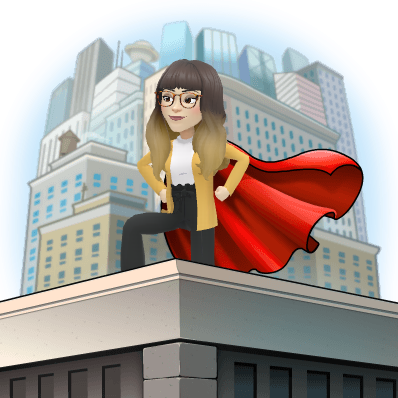Teachers of information literacy must impart a holistic sense of information to students. While, traditionally, school librarians have taught steps to effectively locate and evaluate information, our prime goal as educators must be to enable students to see the context in which information operates. Thinking about how information is created, shared, and ethically used is vital for information literacy. Students must also learn to recognize that variant points of view about a subject can exist, but information can sometimes be manipulated to try to provide "evidence" for unsubstantiated claims. (Facts are not a point of view.)
There are many strategies for creating some understanding of information science. One main challenge is overcoming a student belief that they can find any information they need at the touch of a keyboard or click of a mouse. Typing a question or keywords into Google does not demonstrate an ability to efficiently and intelligently fill an information need. We need to break students of bad habits when it comes to information searching and we need to develop better strategies for doing so.
With a holistic approach in mind, the following are some teaching guidelines when creating a curriculum for information literacy. Students must:
- understand that information is communicated in many forms.
- realize that not all information is readily available.
- search for different perspectives that analyze evidence.
- seek the viewpoints of those who are less visible.
- recognize that the loudest voices are not always the correct ones.
- realize that not all information is documented.
- look for the origination of ideas and see primary sources as best evidence.*
 |
| A game of telephone can boost understanding about information use |
1. Have a student think of a sentence or two and write it down.
2. In the in-person/pre-pandemic version, that person will whisper their sentence in the ear of another student.
3. Student 2 whispers what student one said, into student three's ear.
4. Continue the passing of information through whispering until all students have heard the information.
5. Have the last person say the passed on information out loud and confirm against the written version that it was passed on correctly.
It will not be.
Explain that this is how information works. The primary evidence, the original, is the best source of information in terms of accuracy. When others write or otherwise pass on the evidence, it gets changed. Sometimes the meaning changes slightly with paraphrasing. Sometimes people purposefully (perhaps unethically) change the information to deceive. Sometimes the information was not properly conveyed or received and we just do the best we can with what we've got and pass it on. In other words, the farther removed you are from a source, the more likely it is to be incorrect.
Now, in my modified remote learning version of the game, we have the opportunity to do more than just whisper in a classmate's ear. I hope to try this version next year. Students can distribute their information in alternate ways. Have student one write some information to share with others. I think a short scenario might work well when we are talking about recorded information - something not too long, but not too short. Students can choose how they wish to share the information with one other person, but they must re-write it rather than forwarding or cutting and pasting. They can Snapchat, text, or post to Instagram. They can Email the information or snail mail it. They can tweet it or DM through Facebook. They can even call another student or use video chat to relay information verbally. I can see this exercise taking a few days, demonstrating how information travels through various channels and over time.
Weaving information literacy into lessons throughout the year, continually remind students about the lessons learned in telephone. Remind them that it is their challenge to find the best information, to seek the source, and to not assume that the original answer they find is accurate. Through one lesson at a time, convey concepts that demonstrate how the concepts of information science allow one to confidently find the right information, not just the easiest to find information.


